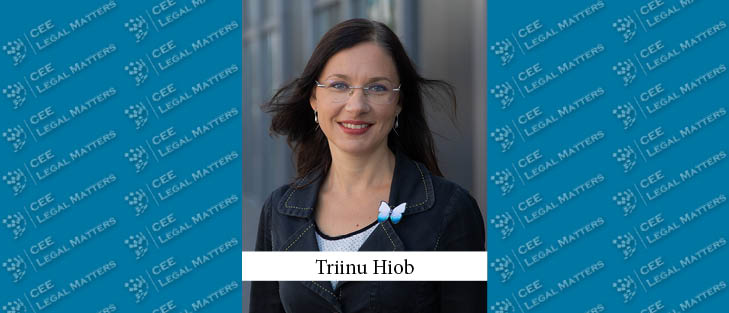In Estonia, the push toward renewable energy, particularly offshore projects, is gaining momentum, with recent developments in grid connections and government support schemes, according to Njord Partner Triinu Hiob who also reports on tax changes and judicial reforms on the horizon.
"Estonia is striving to replace fossil fuels with renewable energy, and offshore energy is gaining momentum," Hiob begins. While there have been some limitations, particularly with grid connections, progress is happening, she says. "Just recently, the initial connection for a major offshore energy project was announced." The government is also discussing support schemes for large-scale energy projects, which will have significant implications for legal professionals, she reports.
"We’re seeing a surge in construction, planning, and zoning projects related to renewable energy," Hiob continues."Dispute resolution is another area that’s evolving, especially with renewables-related projects involving international investors, where arbitration is becoming more common."
In addition to the renewable energy boom, Hiob mentions recent as well as still pending tax changes. "The government’s core aim is to improve the balance of the state budget, and that involves new taxes and tax increases. For example, VAT was increased from January this year, and another hike is scheduled for July 2025. Starting in January 2026, we will see the introduction of a new tax – corporate profit tax," Hiob explains. "What’s unique about our system is that reinvested profits haven’t been taxed over the past two decades, which has been a competitive advantage for our country. The amendment that is planned as a temporary measure for 2026 and 2027, will introduce a 2% tax on all profits to support defense spending." According to her, this will keep tax lawyers and advisors busy as, due to the temporary nature of the new tax, companies may wish to adjust the timing of realizing the profit.
Continuing, Hiob shares her insights on how the government is balancing its efforts to increase revenue with cost reductions, which does not leave the judicial system unaffected. "This is where things get a bit tricky – the Ministry of Justice recently canceled an application process for new judges, despite the courts experiencing heavy workloads in recent years," Hiob says. "On the background, the ministry plans to address the workload of the courts with some minor measures, but one change with significant practical effect for parties is a contemplated amendment to the procedural code, which will affect interim relief measures. Currently, judges must decide on interim relief requests within a day, but the proposed amendment will extend that to three days. This might seem like a small change, but it will have a notable impact on how efficient those decisions are, which affects both lawyers and clients," Hiob explains.
Finally, Hiob concludes by stating that, "apart from the tax law amendments, there haven’t been any major changes in the past few months. However, the upcoming profit tax and the procedural changes in the courts are certainly areas to watch. Legal professionals in Estonia are bracing for a busy period as these new laws take effect and we begin to see their real-world implications."















